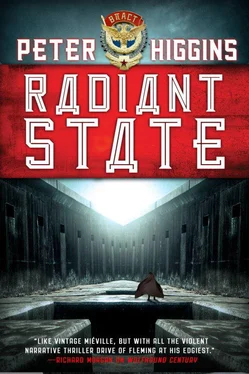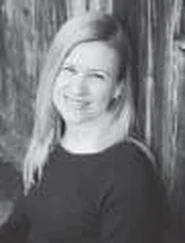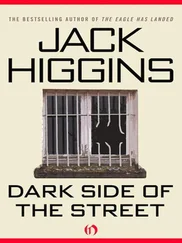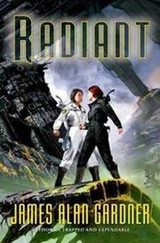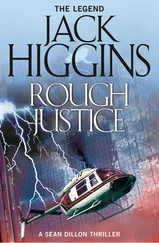‘This way is navigable?’ said Lom.
‘It’s a few years since I was here,’ said Kamilova.
Ruined stonework lined the water’s edge: low embankments, mossy and root-broken and partly collapsed, the stumps of rotted wooden jetties, rusted mooring rings. Back from the canal edge were low mounds and rooted stumps of standing stone. Broken suggestions of fallen ruins lost. Earth and grass and undergrowth spilled in a slow tide across ancient constructions and slumped into torpid water.
‘It’s an old trader canal,’ said Kamilova. ‘It connects with another river over there beyond the hill. In the time of the Reasonable Empire, when the Lezarye families were hedge wardens and castellans of the forest margin, you’d have seen a town here. Trading posts. Warehouses. Of course the trade was already ancient when the Lezarye came. There was always trade into the forest and out of it.’
‘Timber?’ said Lom. ‘The canal seems too narrow.’
‘Not here, that was always big-river trade. In places like this you’d find charcoal burners and wood turners. Fur traders selling sable, marten, grease beaver, miniver, fox, hart. There were markets for dried mushrooms and lichens and powdered barks. Syrups and liquors. Scented woods. Wax and honey and dried berries. Antler and bone. Anything you could bring out of the forest and sell. And there’d have been shamans and völvas and priests. Giants of course, and the other forest peoples would come out this far too. Keres and wildings. This was debatable land then. Marginal. Liminal. A crossing place.’
They passed under the long evening shadow of a round-towered and gabled building of high sloping walls: red brick and timber, collapsing, overgrown, roofless and empty-windowed.
‘A Lezarye garrison way fort,’ said Kamilova. ‘The trade leagues paid the Lezarye to keep the peace and the Reasonable Empire paid them to watch the border and make sure the darker things of the forest stayed there.’
The pace of the boat slackened as the evening breeze dropped away. There was thinness and a still, breathless silence in the air. Lom felt he was at the bottom of a deep well filled up with ages of time.
Kamilova shook herself and looked wary.
‘Things are slowing here,’ she said. ‘I know the feel of this from when I was with Elena’s girls. We shouldn’t linger.’
She unshipped oars and began to row, nosing the Heron forward through thickening standing water. Lom watched her muscular arms working. The intricate interlaced patterns on her skin were like winding roots and knots of brambles and young tendrils reaching out across the earth. They seemed fresher and more vivid than he’d noticed before. There was much he wanted to ask her. But not yet. The wooded hills of the forest edge rose higher and denser before them, closer now, catching the last light of the setting sun. A rich and glowing green wall.
After an hour or so the waterway widened and the going was easier, but the last light of the day was failing. Kamilova tied up the Heron .
‘We’ll camp for the night,’ she said. ‘Tomorrow we’ll go in under the trees.’
Yakoushiv the embalmer presented himself at the office of Colonel Hunder Rond, commander of the Parallel Sector. Yakoushiv was clammy with sweat. He felt sick. He could hardly speak for nerves. He thought his end had come.
‘You did a nice job with the corpse of the old Novozhd,’ said Rond. ‘Very pretty. I have more work for you, if you’re interested.’
Yakoushiv’s legs trembled with relief. He almost fell. He felt as if his head had become detached from his neck and was floating a foot above his shoulders. He dabbed at his face with a sweet handkerchief.
‘Of course,’ he said. His voice came out wrong. Pitched too high. ‘The subject? I mean… who is the…?’
‘Come through and I’ll show you.’
Rond led him through to the other room. Yakoushiv’s eyes widened in surprise. Another wave of sick nervousness and fear. The corpse of the disgraced Papa Rizhin was laid out in Rond’s inner office on a makeshift catafalque.
‘You will work here,’ said Rond. ‘You will write me a list of what you need and I will obtain it for you. There is need for great haste. He must be ready tonight. You understand? Is that possible?’
‘Of course.’
‘Make it your best work ever. And get rid of the scar on his face.’
Yakoushiv worked as rapidly and as neatly as he could. It was impossible to avoid making a mess in the room. There was… spillage. But when he had finished the corpse of Osip Rizhin was glossy and shining and fragranced with a cloying sickly sweetness.
When Rond returned he examined Yakoushiv’s work from head to foot.
‘You’ve done well,’ he said. ‘You should be pleased, Yakoushiv. Your last job was your best. I hope you can take some satisfaction from that. I’m only sorry you can’t go home now.’
Yakoushiv turned white. ‘No,’ he said. ‘Please. No.’
‘There can be no blabbing, you see. No tales to be told.’
‘I won’t. Of course. I promise. Please—’
‘I’m sorry, Yakoushiv,’ said Rond.
Next morning Lom woke at the outermost, easternmost edge of the world he knew, he and Kamilova alone in an emptied ancient landscape.
The sun had not yet risen above the edge of the forest. Close now, the hills were dark shoulders and hogs’ backs of dense tree canopy draped in mist and cloud. Home of ravens. On the lower slopes he could see the relics of long-abandoned field boundaries under bracken and scrub, and out of the scrub rose great twisted knobs and stumps of rock, shoulders and boulders of raw stone. Stone the colour of rain and slate.
The stone seemed to hum and prickle the air.
The Lezarye used to keep the debatable lands by patrol and force of arms , Kamilova had said, but the forest maintains its own boundary. It’s stronger now than I’ve ever felt it before.
I feel it , said Lom . Yes.
Kamilova, bright-eyed and alive, raised the Heron ’s brown sail, and the little wooden boat took them up the river and into the trees.
As they travelled, Kamilova kept up a stream of quiet talk, more talk than Lom had ever known from her before. She talked about the people who went to live among the trees.
‘The forest changes you,’ she said. ‘It brings out who you are. The breath of the trees. Giants grow larger in the woods.’ She talked about hollowers, hedge dwellers who dug shelters in the earth. ‘They don’t hibernate, not exactly, but their body temperature falls and they’re dormant for days on end. They sleep out the worst of winter underground like bears do.’
She told him the names of clans. Lyutizhians meant people like wolves, and Kassubians were the shaggy coats.
‘I saw things once that someone said were bear-made. They were rough things, strange and wild and inhuman, for paws and muzzles and teeth to use, not dextrous fingers. But it was just a rumour. Humanish forest peoples keep to the outwoods, but there’s always further in and further back.
‘The forest is a bright and perfumed place,’ she said, ‘with dark and tangled corners. It is not defined. It includes everything and it is not safe. The forest talks to you, but you have to do the work; you have to bring yourself to the task. Communication is indirect and you must pay attention. You have to dig. Dig!’
Lom hardly listened to her. The river was passing through a gap between steep slopes, almost cliffs, under a low grey sky, and there was the possibility of cold rain in the air. The troubling ache in his head that had been with him all morning, the agitated throbbing of the old wound in his forehead, was fading. His sense of time passing had lurched, dizzying and uncomfortable, but it was settled now. Time present touched the endless eternal forest like sunlight grazing the outer leaves of a huge tangled tree or the surface of a very deep and very dark lake. The forest was all Kamilova’s stories and more, but it was also a breathing lung made of real trees and rock and earth and water. He felt the aliveness of it and the way it went on for ever.
Читать дальше
